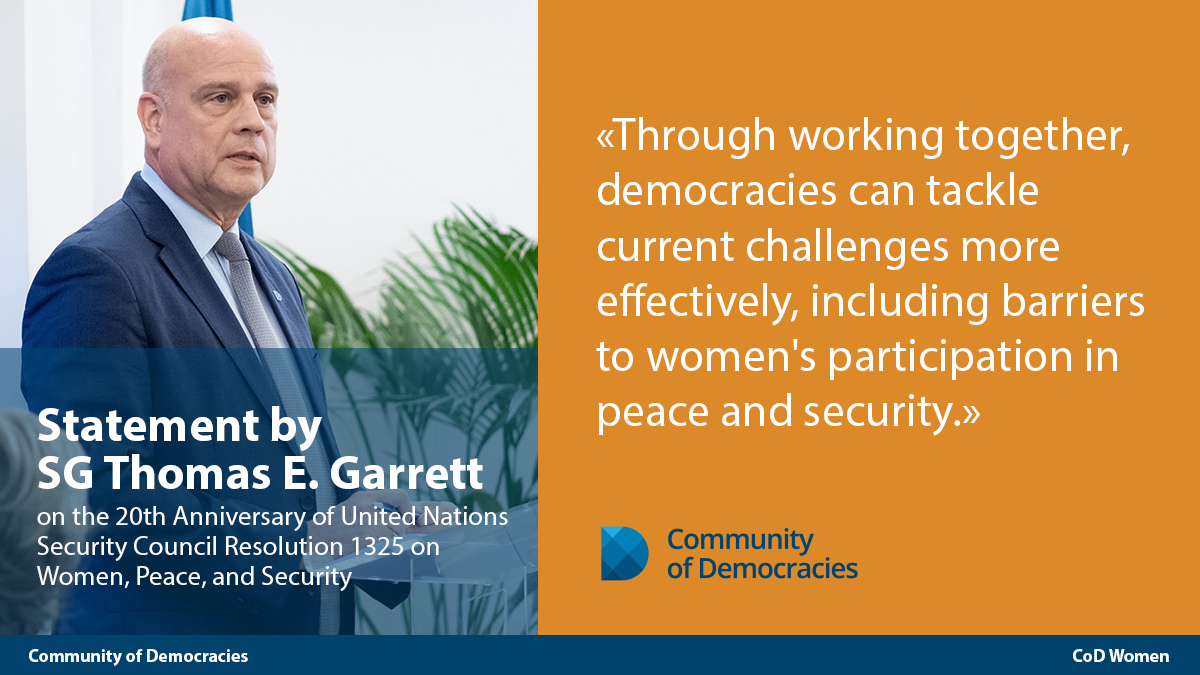

Secretary General’s Statement on the 20th Anniversary of United Nations Security Council Resolution 1325 on Women, Peace, and Security
The inclusion of women is a prerequisite of peace. Despite the international commitments and available evidence supporting the importance of the role of women in this field, their active participation in peace talks or peacebuilding strategies has been limited globally. In the current circumstances of the COVID-19 pandemic, women face more challenges to their involvement in peacebuilding.
Through working together, democracies can tackle current challenges more effectively, including barriers to women’s participation in peace and security. Community of Democracies’ (CoD) Governing Member States have been actively engaged in activities aimed at promoting women’s involvement in peacebuilding and peacekeeping at various international forums.
This week, CoD Governing Council Member Mexico, together with France, led the launch of the Women, Peace and Security (WPS) and Humanitarian Action Compact as part of the UN Women’s Generation Equality Forum.
Building on a guide to best practices on engaging women’s in sustaining peace, developed by the CoD with the support of its Member State the Republic of Korea, this year the CoD launched “Women in Peacebuilding: Stories.” The publication highlights stories of women peacebuilders from Liberia, Nagorno-Karabakh, Nepal, Romania, and Sri Lanka.
At the Community’s event on women, peace and, security, held on October 29, 2020, women leaders in peacebuilding and peacekeeping noted:
Women, peace, and security work builds the platform for inclusive political processes post- conflict where women play the rightful roles in politics, Ms. Marita Sørheim-Rensvik, Special Envoy for Women, Peace and Security, the Royal Norwegian Ministry of Foreign Affairs.
Gender equality is a building block of democracy and is key to sustainable democracy. The 20th anniversary is a call to transform the systems of power in our societies that generates the inequality and violence to build sustainable democracy, Ms. Lynrose Genon, Member of the Executive Council of Young Women for Peace and Leadership, the Philippines.
To ensure that women peacekeepers are recognized actors in the rule of law work on the ground and that their needs are met, we need to ensure women’s leadership concerning peacekeeping and security, Chief Superintendent Raluca Domuta Marga of Romania, Former U.N. Peacekeeper in Haiti.
Women’s participation in peace and security is strongly interlinked with strengthening of democracy. The CoD will continue to work with its Member States and the Working Group on Women and Democracy to advance women’s engagement in building and sustaining peace to create more peaceful and inclusive societies.



